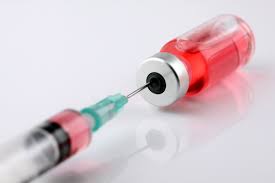Two cancer patients were successfully treated with fecal microbiota transplants (FMTs) for colitis caused by immunotherapy, according to a case report published today (November 12) in Nature Medicine. Both patients accepted donors’ gut microbiomes following the procedure and their symptoms cleared up within weeks.
“This is an exciting, small case series that shows the therapeutic potential of fecal microbiota transplant for a relatively common complication of immunotherapy treatment,” says Ami Bhatt, an oncologist who studies the role of microbes in cancer at Stanford
University and who was not involved in this work. “This is the first time that a fecal transplant has been shown to be promising for a therapy-related complication.”
For Bhatt, this initial study is also important because it underscores the severe and often treatment-limiting side effects that can come with immunotherapy and that have implications for how cancer patients fare from these therapies.
Immune checkpoint inhibitor antibodies such as those that target cytotoxic T-lymphocyte associated protein 4 (CTLA-4) and programmed cell death protein 1 (PD-1) found on the surface of T cells help rev up the immune system to attack tumor cells. These checkpoint inhibitor antibodies are now approved by the US Food and Drug Administration to treat a range of advanced tumor types including melanoma, lung cancer, and kidney cancer. While typically prolonging patients’ lives, the therapies can also damage the immune system, causing colitis, or inflammation of the colon, skin rashes, and liver inflammation.
“With the increased use of checkpoint inhibitors to treat cancer patients, we have seen an increase in the number of patients that have gastrointestinal toxicity,” says study author Yinghong Wang, a gastroenterologist at the University of Texas MD Anderson Cancer Center in Houston. “And unfortunately, we still don’t have good quality data on how to manage some of these patients that have severe forms of this toxicity.”
Immunotherapy-treated cancer patients who develop colitis are initially treated with immunosuppressive steroids. If this doesn’t work, then doctors try additional nonsteroidal drugs that help to quell the immune system. About half of patients who develop colitis don’t respond to the initial steroid treatment, according to Wang. “We often have to stop the immunotherapy, and the immunosuppression may potentially counteract the checkpoint inhibitor activity,” she tells The Scientist.
Transferring stool microbes from healthy donors is now an established way to prevent and clear recurrent Clostridium difficile infections. Wang had previously performed many FMTs on patients with C. difficile infections and wanted to test FMTs as an alternative and potentially safe colitis treatment that did not suppress the immune system.
For the transplant, fecal matter is collected from a healthy donor, strained to collect the bacteria and other microbes, and delivered to the patient’s colon. Donors are screened to make sure they don’t have a history of health issues and the bacteria are assessed for any possible pathogens. Sometimes patients’ family members serve as the FMT donor.
“FMTs attempt to normalize the gut microbiota ecosystem in patients whose gut ecosystems have been disrupted by infection, antibiotics, or other reasons, no matter whether it’s cancer patients or those with bowel disorders,” says Alexander Khoruts, a gastroenterologist and immunologist at the University of Minnesota who performs fecal transplants and was not involved in the work.
Wang and her colleagues performed the FMTs on two immunotherapy patients who had severe colitis. Both already failed to respond to steroids and immunosuppressive antibodies for their gut inflammation. One patient had advanced metastatic urothelial carcinoma and was being treated for her cancer with a combination of anti-CTLA-4 and anti-PD-1 antibodies as part of a clinical trial. After the FMT, her symptoms resolved within two weeks, and the gut inflammation almost completely recovered in one month, confirmed by a colonoscopy.
The second patient had advanced prostate cancer and received an anti-CTLA-4 antibody therapy, also part of a clinical trial. This patient partly recovered from the colitis, but had remaining ulcers after the first FMT. So Wang’s group delivered another round of donor microbes and the colitis cleared up, also confirmed by colonoscopy.
In both patients, effector T cells within the colon decreased and regulatory T cells, which dampen the immune system, increased, a sign that the gut inflammation had subsided.
The team also collected the patients’ stool samples before and after the fecal transplants to analyze their microbiomes. Between the two patients, there was little overlap in the bacterial species detected prior to the transplants, but following the microbial transfers, both had an increase in gut microbes associated with a healthy colon. “I wouldn’t draw any strong conclusions from the microbiome data here because it’s from a limited number of patients,” says Bhatt.
What exactly constitutes a healthy microbiota still remains unclear. “There is a somewhat emerging standard approach for identifying a favorable gut microbiota, which is one from a healthy donor that has lots of diverse bacterial species,” says Thomas Gajewski, a cancer clinician and researcher at the University of Chicago who studies the role of the gut microbiota in modulating patients’ responses to immunotherapy and was not involved in the study. “But we don’t truly know the answer in any detail as to what the specific bacterial contents should be in donor fecal material to achieve beneficial effects.”
The MD Anderson team would like to now test the effectiveness of FMTs to treat colitis in patients receiving checkpoint inhibitor immunotherapy in a large clinical trial.







